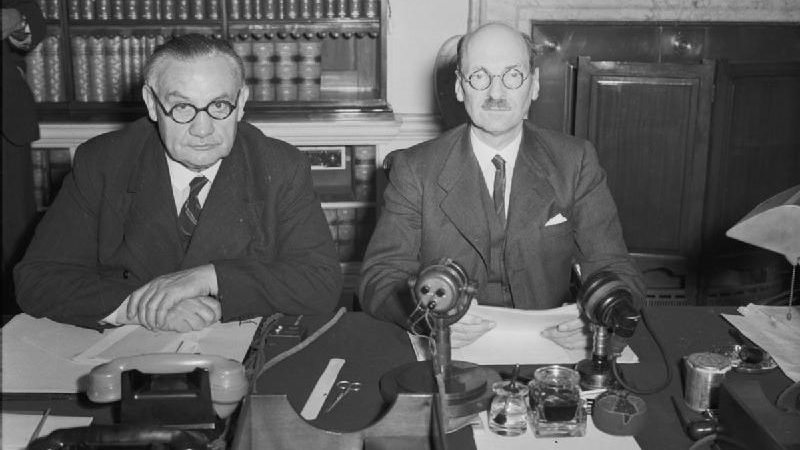
Speaking at a Progressive Britain conference this weekend, Labour leader Keir Starmer promised to go ‘further and deeper’ than his predecessor Tony Blair’s governments. So is Labour really heading for the kind of radical agenda being hinted at?
Most post-war elections have brought continuity rather than transformative change. Only the elections of 1945, 1979 and 2010 can be seen as watershed moments that brought profound waves of change, and only one of them in a progressive direction. Each of these was driven by a mix of economic upheaval and ideological shift.
As in 1945 and 1979, the immense challenges of the time require transformative government. Britain faces multiple economic and social crises, from a stagnant economy and deepening impoverishment to falling life expectancy rates in deprived communities.
Opportunities for progressive shifts cannot be missed
The dominant neo-liberal, pro-market model has been wholly discredited. Public opinion yearns for a better, fairer and more equal society. There are extensive calls for a ‘global reset’ of market capitalism.
Opportunities for progressive shifts are rare and cannot afford to be missed. Despite a strengthening of public services, and other significant steps such as the National Minimum Wage, New Labour failed to take advantage of their near record parliamentary majority in 1997 to overturn the inequality-driving and growth-sapping pillars of neoliberalism and build a new model of social democracy.
“I always thought my job was to build on some of the things she had done rather than reverse them,” Tony Blair told the BBC on the day of Margaret Thatcher’s death.
Labour must unravel weak-state, pro-inequality politics
So will Starmer really be bolder than Blair? To live up to the weekend’s rhetoric, Labour needs to commit to an unravelling of the weak-state, pro-inequality politics of the last decade and a half. Will Britain be finally relieved from austerity, fiscal conservatism, excessive divisions, deteriorating public services and for many, weaker life chances?
Some clues are steadily emerging. But there is still too little clarity on the imperative political issues of the time. Will Starmer challenge the bankrupt orthodoxies of recent decades, reassert Labour’s historic commitment to greater equality, and promote a vision that cuts poverty, narrows the wealth and income gap, and rebuilds Britain’s social state?
Progressive change would need to include reform of Britain’s increasingly regressive tax system. It would need to harness part of the towering private wealth pool for the common good, and finally introduce a guaranteed minimum, a Plimsoll Line for incomes below which no-one would fall.
Such an agenda would need to reverse neoliberalism’s over-extension of markets and the dominance of private over social ownership.
A remarkable nine-tenths of all national assets and infrastructure are now privately owned making Britain one of the most heavily privately and narrowly owned economies amongst rich nations.
The erosion of the common wealth base through rolling privatisation has been among the most socially damaging state-driven trends of recent decades.
Scarce resources have been steered away from meeting basic needs and maintaining public infrastructure to pay for the lavish lifestyles and personal hobbies of the super-rich. Hence the re-emergence of what the American economist JK Galbraith called –in his highly influential 1950’s The Affluent Society – “private affluence and public squalor”.
Rising profits have been siphoned off
To reverse these trends means ending the way big business activity is increasingly geared to quick personal enrichment, with corporations turned into cash cows for owners and executives.
This process of ‘corporate extraction’ by a small elite has come at the expense of the long-term wealth creation that would boost economic resilience and serve the common good.
In a return of what the American economist Thorstein Veblen termed ‘market sabotage’ over a century ago, boardrooms have adopted anti-competitive devices, from killing off rivals to price collusion.
Instead of private investment and wages being boosted, the rising profits of recent times have been siphoned off in disproportionate payments to shareholders and executives.
The lessons of 1945
Starmer mentions 1945. But the key lesson of that time is the way Labour’s popular plan for a significant reshaping of society was honed and signalled during the war years. John Stuart Mill’s description of the 1830s – “mankind have outgrown old institutions and old doctrines, and have not yet acquired new ones” is just as relevant today.
Starmer has given the odd hint of a bold agenda, as with his call for a new Beveridge plan and a big green investment programme. Other promises, such as to improve ‘the welfare safety net’ in its new long policy programme, simply lack detail.
Others, such as de-politicising the appointment of the BBC’s chair, may be desirable but look closer to tinkering than transformation. But if it’s broadly continuity that’s on offer, a Labour ‘new society` would look little different from the dysfunctional one it would inherit.




More from LabourList
‘If Labour is serious about upskilling Britain, it must mobilise local businesses’
Stella Tsantekidou column: ‘What are we to make of the Labour Together scandal?’
‘Unitarisation risks weakening local democracy unless communities are put in the driving seat’